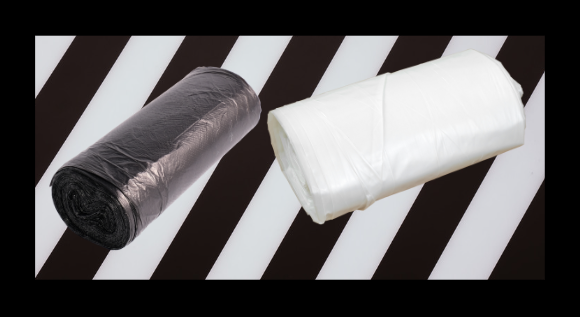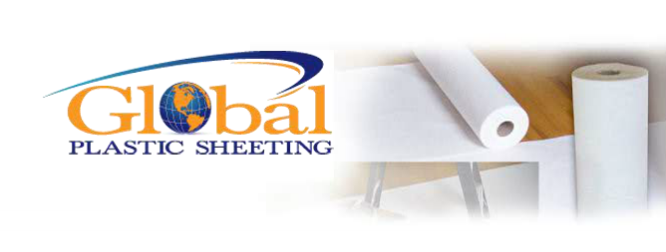What are Industrial Films?

Industrial films are specialized plastic films designed for a wide range of industrial applications across various sectors. These films are typically made from polyethylene (PE), polypropylene (PP), polyvinyl chloride (PVC), polyethylene terephthalate (PET), and other polymers, each offering unique properties suitable for specific industrial needs.
Industrial Films Applications:
-
Packaging: Industrial films are extensively used in packaging applications across industries such as food and beverage, pharmaceuticals, consumer goods, and automotive. They provide protective wrapping for products, ensuring safety during transportation and storage.
-
Construction: In the construction sector, industrial films are employed as vapor barriers, moisture barriers, and protective covers during building projects. They help in maintaining the integrity of structures by preventing moisture ingress and providing temporary weather protection.
-
Agriculture: Agricultural films, a subset of industrial films, are widely used in farming operations. These films include greenhouse films, mulch films, silage films, and crop covers. They aid in crop protection, soil moisture retention, weed control, and temperature regulation, thereby enhancing agricultural productivity.
-
Medical and Healthcare: Industrial films are utilized in medical packaging, including sterile barrier systems, medical device packaging, and pharmaceutical packaging. These films ensure the sterility and integrity of medical products, protecting them from contamination and environmental factors.
-
Automotive: Industrial films find applications in the automotive industry for interior and exterior components. They are used for automotive upholstery, dashboard covers, door panels, and protective films for surface finishes, providing durability and aesthetics.
-
Electronics: Industrial films are integral in electronic applications for insulation, protection, and component encapsulation. They are used in circuit boards, electrical insulation tapes, display screens, and protective coatings for electronic devices.
Properties and Characteristics of Industrial Films:
-
Physical Properties: Industrial films exhibit a wide range of physical properties, including flexibility, transparency, tensile strength, tear resistance, and thermal stability. These properties are tailored to meet specific industrial requirements.
-
Chemical Resistance: Industrial films offer resistance to chemicals, oils, solvents, and other harsh substances, ensuring the integrity of packaged products and structural components.
-
Barrier Properties: Depending on the application, industrial films may possess barrier properties against moisture, oxygen, light, and other environmental factors to preserve the quality and freshness of goods.
-
Customization: Industrial films can be customized in terms of thickness, color, opacity, and surface treatments to meet the specific needs of industrial applications.
Overall, industrial films play a crucial role in modern industrial processes by providing protection, insulation, containment, and packaging solutions tailored to diverse industrial requirements across sectors.
Market Estimate for Industrial Films
Industrial films play a crucial role in modern industrial applications, serving diverse sectors like construction, agriculture, and packaging. With the global industrial films market estimated at USD 44.2 billion in 2023 and projected to reach USD 55.35 billion by 2028, their significance is undeniable. These films, made from materials like LLDPE, LDPE, HDPE, PET/BOPET, and others, offer specific properties tailored to different end-uses, from protective packaging to food labeling.
As urbanization and infrastructure projects surge worldwide, the demand for quality industrial films rises in parallel. Stringent environmental regulations further shape the market landscape, pushing for compliance with emerging standards and driving innovation. Geographically, the market spans across regions, with the Americas, Europe, Asia-Pacific, and other areas contributing to its growth.
Competitively, companies in this market navigate through various strategies, including market development, penetration, product development, and diversification, as analyzed through the Ansoff Analysis. This comprehensive assessment, coupled with a SWOT analysis, guides strategic decision-making and planning for industry players.
In summary, the global industrial films market is on a trajectory of significant growth, fueled by urbanization, environmental concerns, and technological advancements. Through detailed analysis and projections, the market's potential for expansion and innovation becomes evident, making industrial films a cornerstone in modern industrial processes.
Engineered Films vs Industrial Films...What's the Difference?
Industrial films and engineered plastic films serve distinct purposes in various applications:
-
Industrial Films:
- Definition: Industrial films are thin plastic materials designed for industrial use, offering a range of functionalities such as protection, packaging, insulation, and barrier properties.
- Applications: They are commonly used in sectors such as construction, agriculture, packaging, automotive, and healthcare.
- Characteristics: Industrial films are versatile and can be customized based on specific requirements, offering features like UV resistance, tear resistance, puncture resistance, and thermal insulation.
- Examples: Common types of industrial films include polyethylene films, polypropylene films, polyester films, and polyvinyl chloride (PVC) films.
-
Engineered Plastic Films:
- Definition: Engineered plastic films refer to plastic materials that are specially designed and manufactured with specific properties for targeted applications.
- Applications: They are utilized in various industries such as aerospace, electronics, medical devices, and specialty packaging.
- Characteristics: Engineered plastic films are engineered to possess precise properties such as high tensile strength, chemical resistance, optical clarity, flame retardancy, and thermal stability.
- Examples: Examples of engineered plastic films include polyethylene terephthalate (PET) films, polyethylene naphthalate (PEN) films, polycarbonate films, and polyimide films.
Can an engineered film be an industrial film?
Engineered plastic film can be considered an industrial film if it is used in industrial applications.
In summary, while industrial films cater to a broad range of industrial applications with versatile functionalities, engineered plastic films are specifically engineered to meet precise performance requirements in specialized industries and applications.




